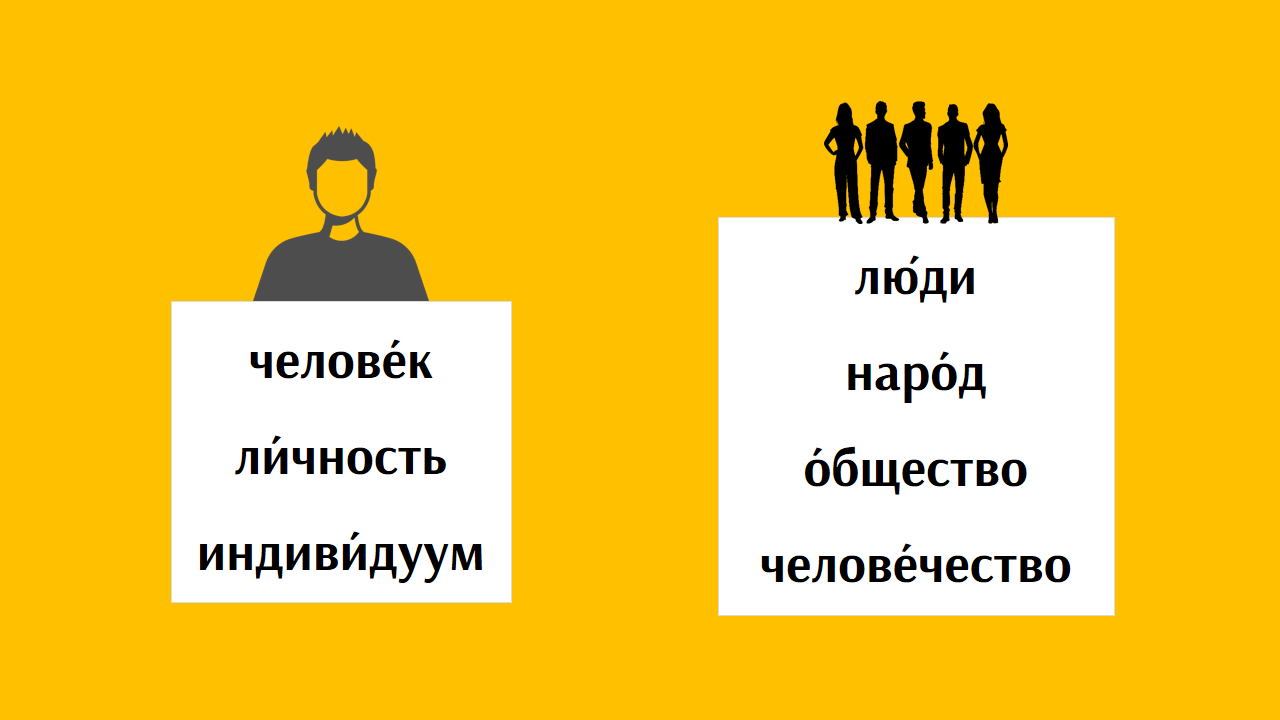Russian Words We Use To Refer to People
When we communicate in Russian, the words we choose to describe people carry a unique blend of tradition and significance. Russian offers a diverse array of terms for referring to individuals, each influenced by factors like gender, age, and social context.
In this article, we’ll examine the various words that Russians use to refer to people and shed light on their significance in everyday communication.
Gender (пол)
Words for Males
In the realm of language, words for males in Russian reveal the country’s rich cultural and historical tapestry. These words convey not only gender but also offer insight into the diverse roles and attributes associated with Russian men.
мужчина [mooshcheena] – man
молодой мужчина – young man
пожилой мужчина – old man
мужик [muzhik] – man (usually strong, big, a redneck or just any dude) [informal]

парень [paryen’] – boy, young man, guy, lad
молодой человек – “young man” (a polite way to refer to a young man or boyfriend)
мальчик [mal’cheek] – boy, male child
маленький мальчик – little boy
старик [stareek], дед [dyed] – old man [informal]
джентльмен – gentleman (borrowed from English)
господин [gaspadeen] – a polite and formal way to address a man, similar to “sir”
See Also: Addressing Others in Russian Using Ты and Вы
Words for Females
Russian, like many languages, has a unique lexicon for describing females. These words go beyond just gender, carrying a reflection of the qualities and characteristics ascribed to Russian women through the centuries.
женщина [zhenshcheena] – woman
молодая женщина – young woman
пожилая женщина – old woman
баба [baba] – woman (usually big and strong, redneck)

девушка [dyevooshka] – girl, young woman
молодая девушка – young girl
девочка [dyevachka] – girl, female child (but women at any age can call themselves “девочки”)
маленькая девочка – little girl
старуха [starookha], бабка [bapka] – old woman [informal, slightly rude]
старушка [starooshka], бабушка [babooshka] – old woman [informal]

In the past, the Russian language, like many other languages, employed a different set of words and expressions to refer to women, reflecting the cultural norms and gender roles prevalent at the time. These historical terms often carried connotations and societal expectations that may appear outdated or even offensive in today’s context.
One such example is the use of the term “дама” [dama], which, while still used in a formal and respectful manner today, was historically reserved for ladies of high social status or noble birth. It was an honorific term denoting not just a woman but a woman of distinction.
Similarly, the word “госпожа” [gaspazha] was once more common in addressing women, particularly those of a higher social class. It is akin to “madam” in English and implied a level of respect and deference. These terms reflect a bygone era when social hierarchies were more pronounced, and language usage reinforced those divisions.
Another historical term is “барышня” [barishnya], which was used to address or refer to young ladies or unmarried women. This word has largely fallen out of common usage but offers a glimpse into the earlier emphasis on a woman’s marital status as a defining characteristic.

See Also: 30 Russian Adjectives to Describe Personality
Stages of Life
An individual’s age is a defining factor in how they are referred to in the Russian language. From the innocence of childhood to the wisdom of old age, these words for various stages of life provide a glimpse into how Russians perceive the passage of time and the value they place on different phases of existence.
We use the following words to refer to people of different ages:
младенец [mladyenyets] – baby
ребёнок [ryebyonak] – child
подросток [padrostak] – teenager
взрослый [vzrosliy] – adult
пожилой человек [pazhiloy chilavyek] – elderly man

General Words for People and Person
люди [lyudee] – people [only plural]
Сегодня многие люди ищут работу в интернете. – Many people today search for jobs on the internet.
Там было много людей. – There were a lot of people there.
У многих людей есть артрит, но они не чувствуют боли. – Many people have arthritis and don’t have pain.
Большинство людей думают, что они знают, чего хотят. – Most people think they know what they want.
человек [cheelavyek] – man/human/person [only singular]
молодой человек – young man
молодые люди – young people
Человек is singular but can be used with numbers and the word “несколько”:
- два человека (two people)
- 5 человек (five people)
- 10 человек (ten people)
- 35 человек (35 people)
- несколько человек (a number of people/several people)
We don’t say “10 людей” or “5 людей”. As well as “много человек” (many people) is gramatically incorrect, though you can hear it in informal speech. But you should say “много людей” if you want to sound right.
Человеки (plural) is incorrect!
личность [leechnast’] – person, individual
сильная личность – strong personality/person
Ребёнок начинает осознавать себя как личность. – The child begins to become aware of himself as a person.
Я самая самодостаточная личность на Земле. – I’m the most self-sufficient person on Earth.
индивидуум [eendeeveedoooom] – individual, person
Один и тот же индивидуум может обладать противоречивыми чертами. – A single individual can embody conflicting traits.
народ [narot] – people, folk, nation
Невозможно победить народ, которому нечего терять. – There is no way to win against people who have nothing left to lose.
Хороший человек не предаёт свой народ. – A good man does not betray his own people.
общество [obshchyestva] – society
человечество [chyelavyechyestva] – humanity, mankind
Более ста лет человечество широкомасштабно использует электрическую энергию. – For more than a hundred years, mankind has been using electrical energy widely.
Вся мудрость человечества собрана в книгах. – The accumulated wisdom of mankind is to be found in books.
Let’s repeat the words we’ve just learned:

In closing, we’ve uncovered a bunch of Russian words for people.
Remember, language is like a window into a culture. These words are like tools, helping people communicate and understand each other better.
So, next time you use these words, think about how they help in describing people and the rich culture behind them. Keep exploring and learning!
Here’s the video for you if you want to hear the pronunciation of each word:
Have some questions on the topic? Leave a comment below!
